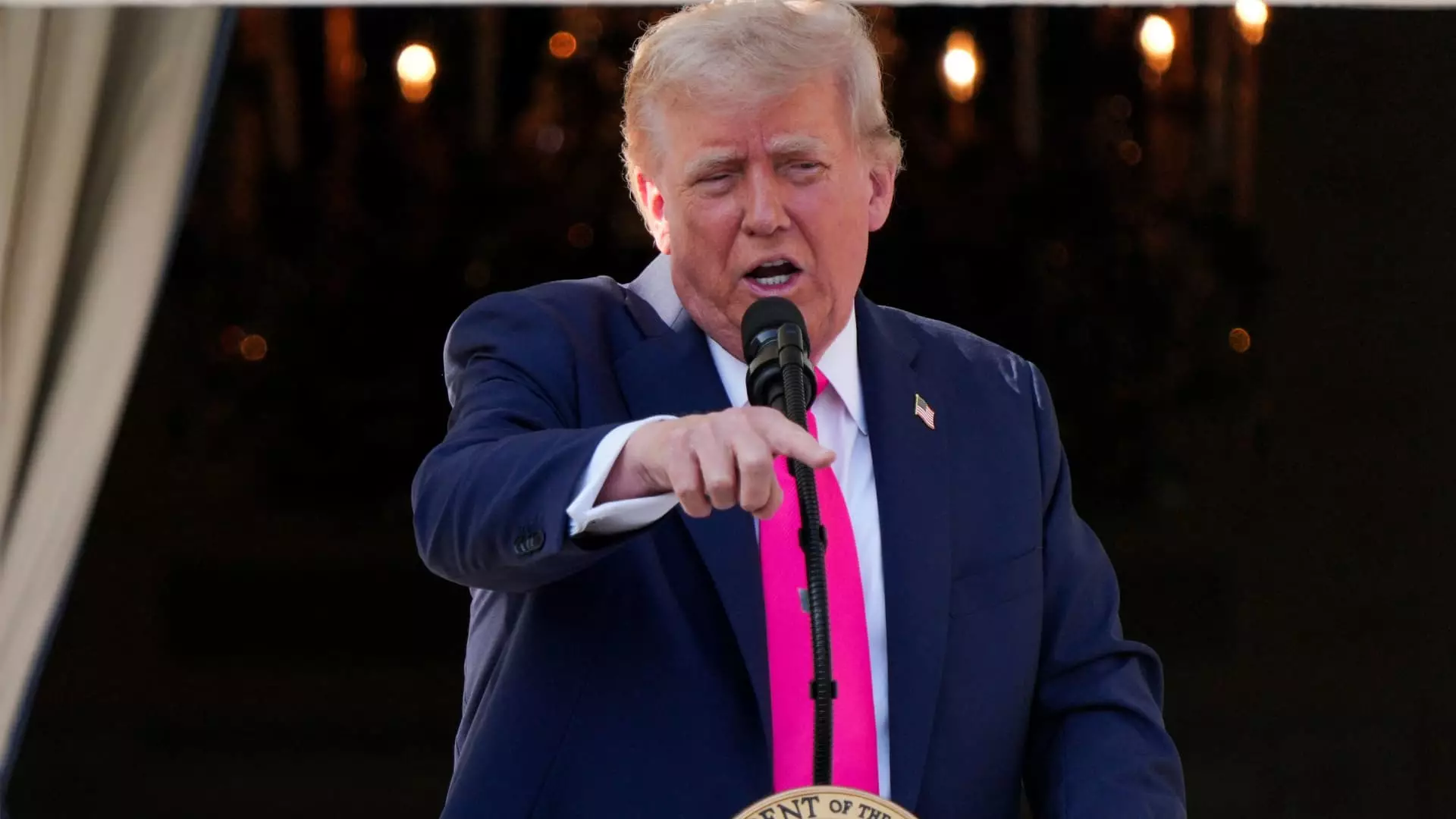In recent developments, President Donald Trump’s blatant escalation of tariffs reveals a troubling shift from traditional trade diplomacy into reckless economic brinkmanship. His unilateral move to send “take it or leave it” tariff proposals to twelve countries embodies a dangerous mentality that prioritizes short-term leverage over long-term stability. What may seem like a bold stance is, in reality, a perilous gamble that risks undermining the very fabric of global commerce. This reckless approach does not just threaten international relationships; it jeopardizes the fragile economic recovery many nations are desperately trying to sustain. Protectionism, often portrayed as a safeguard, is merely a seductive illusion — a temporary shield that inevitably leaves nations isolated and weaker. Trump’s aggressive tariff plans threaten to unravel decades of economic integration and cooperation, thrusting the world back into a cycle of trade wars that benefit no one but a narrow political elite seeking short-term gains.
The Fragile Illusion of Power and Negotiation
Despite claims of negotiations, Trump’s strategy appears rooted in brinkmanship rather than diplomacy. The so-called “better letters” that he promises to send out amidst this chaos are emblematic of a shortsighted approach, revealing an overestimation of power and a profound underestimation of the consequences. By threatening tariffs up to 70%, the administration risks pushing allies and rivals toward economic retaliation, which could trigger a domino effect of protectionist moves worldwide. The perception that escalating tariffs will provide leverage ignores the interconnectedness of global markets. Recent trade deals with the UK and Vietnam demonstrate superficial wins that mask deeper failures—those agreements came after years of negotiations, not days. Trump’s tactics, characterized by abrupt policy shifts, reveal an impatience that diminishes the possibility of meaningful consensus. In the long run, this approach could alienate allies and diminish America’s influence, contradicting the fundamental principles of sustained global leadership.
Economic Nationalism as a Double-Edged Sword
At its core, Trump’s tariff strategy illustrates an embrace of economic nationalism that dangerously borders on self-destructive. While appealing on a populist level—conveying strength and resilience—it fundamentally neglects the complexities of modern trade. It ignores the nuanced benefits of multilateral agreements, which are designed to foster mutual growth and stability. By opting for a confrontational stance, the administration risks inciting retaliatory measures that could lead to a downward spiral of tariffs and trade barriers. Such a scenario would not favor any country—least of all the American worker or consumer, who ultimately bears the brunt of inflated prices and diminished choices. This reckless pursuit of “America first” threatens to erode years of diplomatic efforts fostering international cooperation, leaving the global economy scarred and less predictable.
A Call for Responsible Economies and Pragmatism
Rather than resorting to aggressive tariffs, a more responsible approach involves pragmatic engagement and long-term strategic alliances. The current path of hostility and unilateral action ignores the vital reality that economic stability depends on collaboration and mutual interest. Policymakers must recognize that trade is not a zero-sum game. The recent lack of progress with India and the European Union underscores the pitfalls of an aggressive departure from negotiated solutions. If anything, these stalling negotiations highlight the necessity for patience, dialogue, and innovative approaches that promote fair trade without descending into economic warfare. Real leadership involves balancing assertiveness with diplomacy—admitting when an adversary’s concerns are legitimate and working collaboratively toward solutions that serve the collective good. Unfortunately, the Trump administration’s approach seems driven by a desire for quick wins, making the consequences of miscalculation all the more perilous for the future of global economic stability.


Leave a Reply